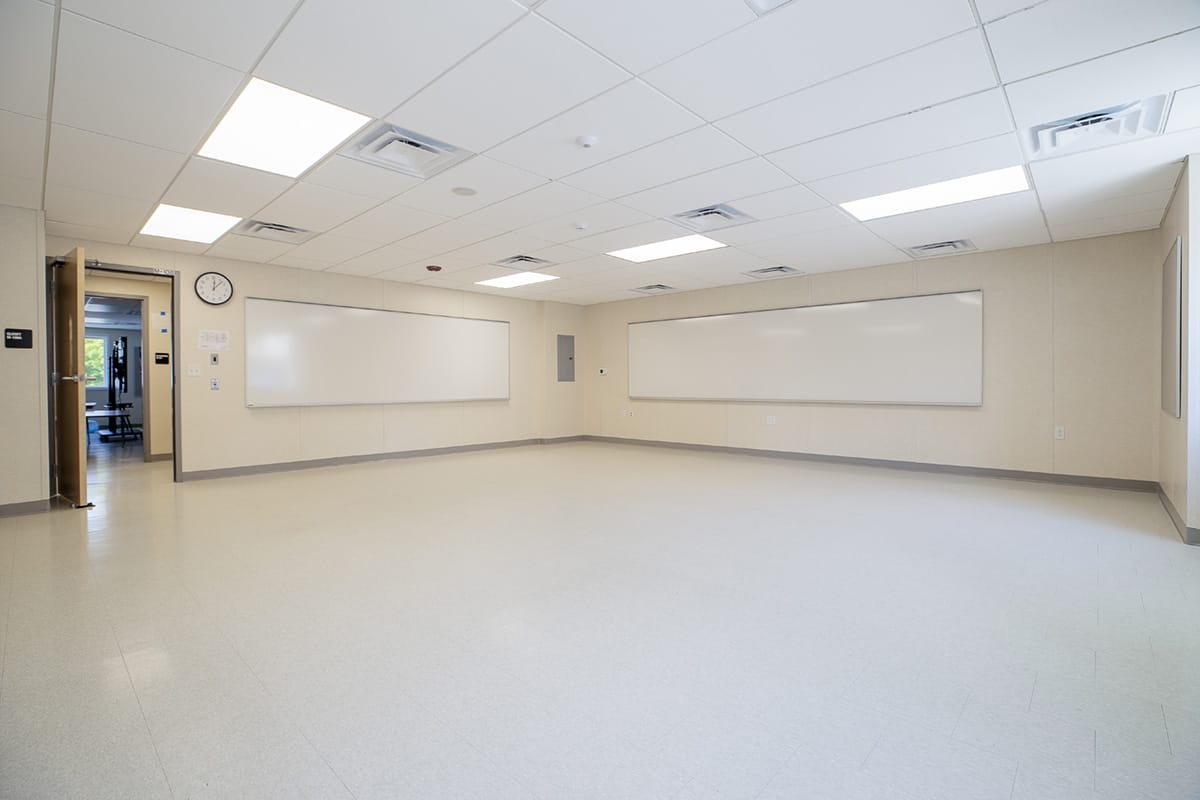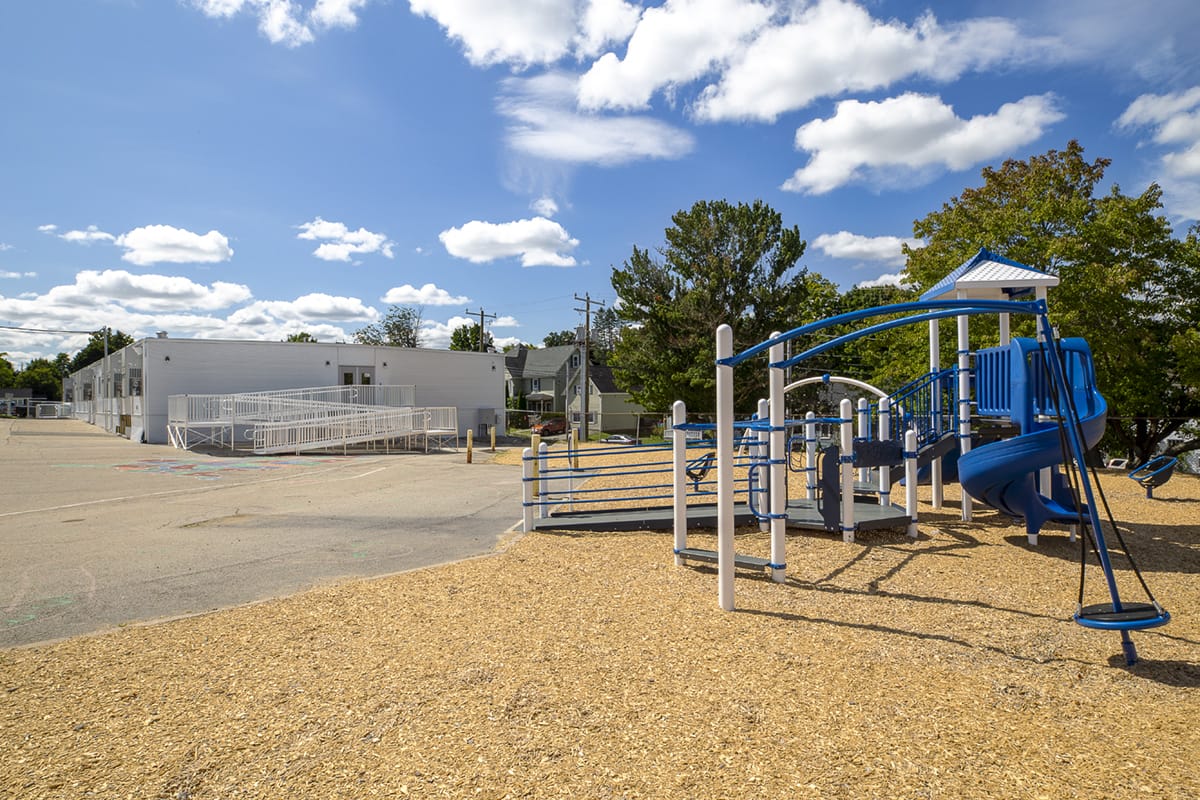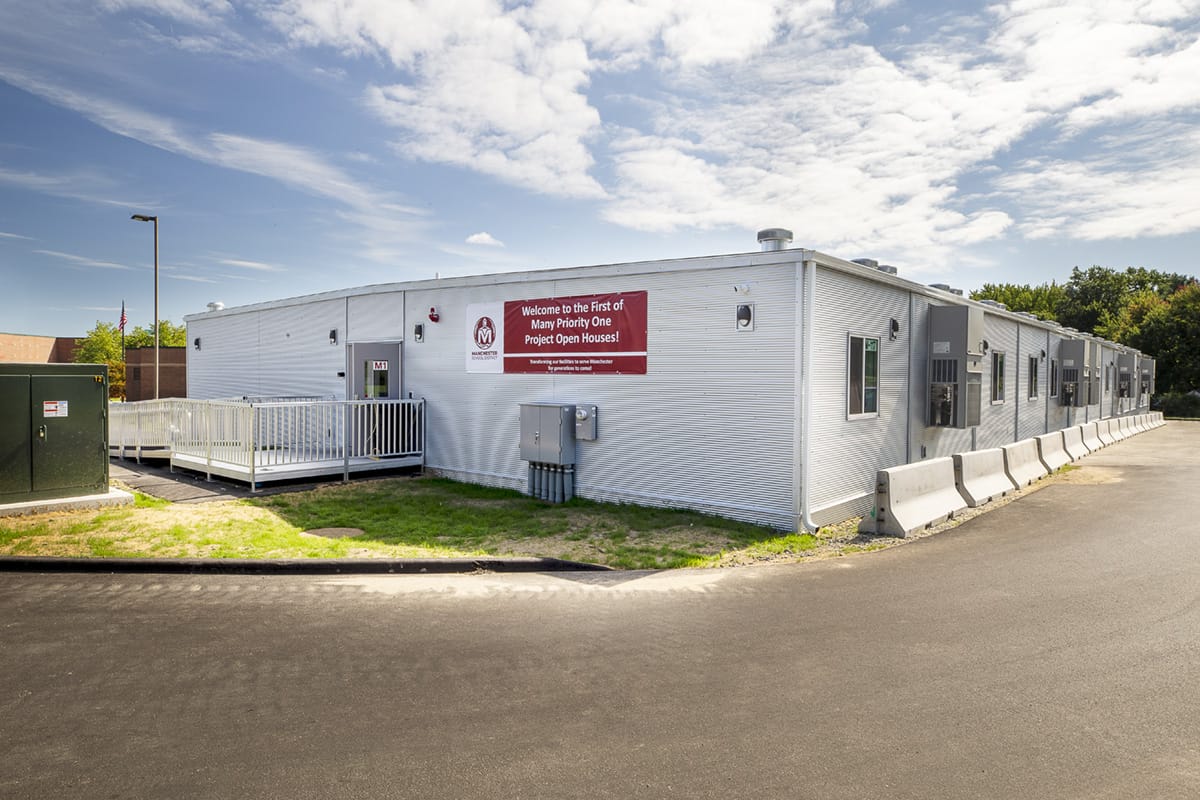Manchester Public Schools Temporary Classroom Space
Project Overview
The Manchester School District in New Hampshire embarked on an ambitious $306 million facilities modernization project in 2024. As part of this initiative, the district implemented a strategic plan to utilize modular classrooms during the renovation and construction process. Triumph Modular won the contract to provide and install 72 modular units across six schools in Manchester. These units included 56 classrooms, encompassing 59,730 square feet and accommodating up to 910 students. Additionally, 16 units were designated for offices, meeting rooms, and other educational purposes.
Project Timeline
The project commenced with the arrival of the first modular unit on June 1, 2024. Following this, a rolling delivery and installation schedule continued throughout the summer months. By August 28, 2024, all modular classrooms were ready for occupancy, ensuring students had access right at the start of the school year.
Scope of Work
Triumph Modular’s responsibilities were comprehensive, encompassing foundation preparation, unit installation, and the connection of essential utilities such as electricity, lighting, HVAC systems, and data networks. This meticulous attention to detail ensured that each classroom was fully equipped and ready for occupancy.


Project Partners
The project’s success was possible through collaboration among several key stakeholders. The Manchester School District worked closely with Consigli Construction, which managed site preparations, and Triumph Modular, which focused on providing the modular classrooms. This partnership exemplified effective teamwork in addressing the challenges posed by extensive renovations.
Impact and Benefits
The implementation of modular classrooms significantly impacts the school district. The buildings can accommodate up to 1,000 students during construction, allowing education to proceed without interruption. The modern and fully equipped modular learning spaces ensure a smooth transition for both students and staff. Additionally, this approach supports a phased renovation strategy across the district. The Manchester School District is effectively using modular classrooms as a flexible solution to maintain educational continuity during a major facilities overhaul.

More from Modular Advantage
AoRa Development Aims for New York’s First Triple Net Zero Building Using Modular Methods
More cities are providing funding for newer infrastructure projects as long as they meet sustainability requirements. This is how modular can fit the bill, thanks to its lower waste production.
Developers and Designers: Lessons Learned with Modular Design
Modular construction is attractive to many developers because sitework and module construction can occur simultaneously, shortening the schedule and reducing additional costs.
UTILE: Putting Modular Building on a Fast Track
In Quebec, UTILE is taking the lead in creating affordable modular buildings to help decrease the student housing shortage. During the process, the company discovered what it takes to make the transition to modular building a success.
Sobha Modular Teaches Developers How to Think Like Manufacturers
With its 2.7 million square foot factory in UAE, Sobha Modular is bringing both its high-end bathroom pods to high-end residences to Dubai while developing modular projects for the U.S. and Australia.
RoadMasters: Why Early Transport Planning is Make-or-Break in Modular Construction
In modular construction, transportation is often called the “missing link.” While it rarely stops a project outright, poor planning can trigger costly delays, rerouting, and budget overruns.
Navigating Risk in Commercial Real Estate and Modular Construction: Insights from a 44-Year Industry Veteran
Modular projects involve manufacturing, transportation, and on-site assembly. Developers must understand exactly what they are responsible for versus what they subcontract. Risk advisors should research the developer’s contractors, subcontractors, and design-build consultants—especially the modular manufacturer.
Art²Park – A Creative Application of Modular and Conventional Construction
Art²Park is more than a park building—it’s a demonstration of what modular construction can achieve when thoughtfully integrated with traditional materials. The use of shipping containers provided not only speed and sustainability benefits but also a powerful structural core that simplified and strengthened the rest of the building.
Building Smarter: A New Standard in Modular Construction Efficiency
Rising material prices, labour shortages, expensive financing and tightening environmental rules have made conventional construction slower, costlier, and more unpredictable. To keep projects on schedule and within budget, builders are increasingly turning to smarter industrialized methods.
Resia: Breaking All the Rules
Resia Manufacturing, a division of U.S.-based Resia, is now offering prefabricated bathroom and kitchen components to industry partners. Its hybrid fabrication facility produces more precise bathroom and kitchen components (modules) faster and at lower cost than traditional construction. Here’s how Resia Manufacturing does it.
How LINQ Modular Innovates to Bring Modular To The Market in the UAE and Beyond
LINQ Modular, with an office and three manufacturing facilities in Dubai, is a modular firm based in United Arab Emirates. The company is on a mission: to break open the housing and construction markets in the Gulf Cooperation Council (GCC) area with modular.












